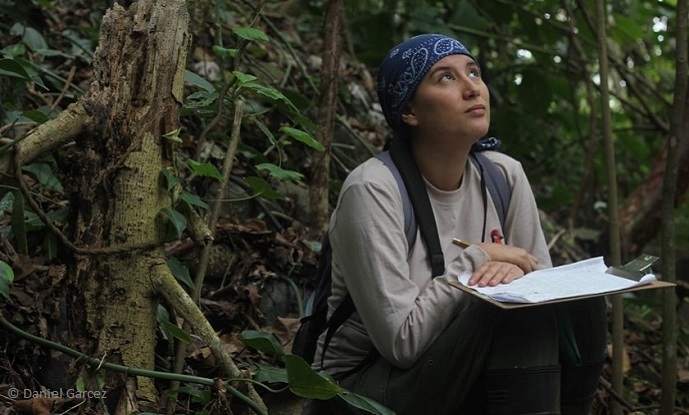Amalia de la Torre
PhD Student
Details
Position
PhD Student
Member type
Students
Email
Degree
MSc
Address
CIBIO-InBIO, Universidade do Porto, Campus de Vairão, Rua Padre Armando Quintas, 4485-661 Vairão, Portugal
Groups
I am a Neuroethologist passionate about social behaviour, and I have collaborated in several research projects dealing with different aspects of behaviour, such as diet, affiliative behaviour, social behaviour and reproductive strategies. I have a Biology degree from the Universidad San Francisco de Quito, Ecuador. During my graduate thesis I had my first encounter with behaviour, working with a semi-captive group of pygmy marmosets in which I registered and analyzed the social interactions of the group, like grooming and social playing behaviors. For me, this encounter was a decisive step in my career because I realized that studying animal behaviour is a way to understand human behaviour, and I fell in love with this possibility. Throughout the time of my graduate degree I was part of the First Primate Census in Western Ecuador, this resulted in my first academic publication. In my MSc, using behaviour, genetics and endocrinology, I studied female reproductive strategies in the mantled howler monkey in Mexico. This resulted in two publications in scopus indexed journals. One of the publications is my MSc research, about the variance in maternal care according to offspring sex and maternal physical condition. After my Master degree I worked as an external researcher for a project about Human-Wildlife Interactions in Uganda, at the present we are preparing the article for publication.
Within animal behaviour I am interested in social and sexual interactions, pair bonds, cooperation, the influence of personality and cognition in these different types of associations, and the overall effect of phenotypic traits in social and sexual selection. I have knowledge and experience in ethology, field work, formal testing of theoretical models and laboratory work.


